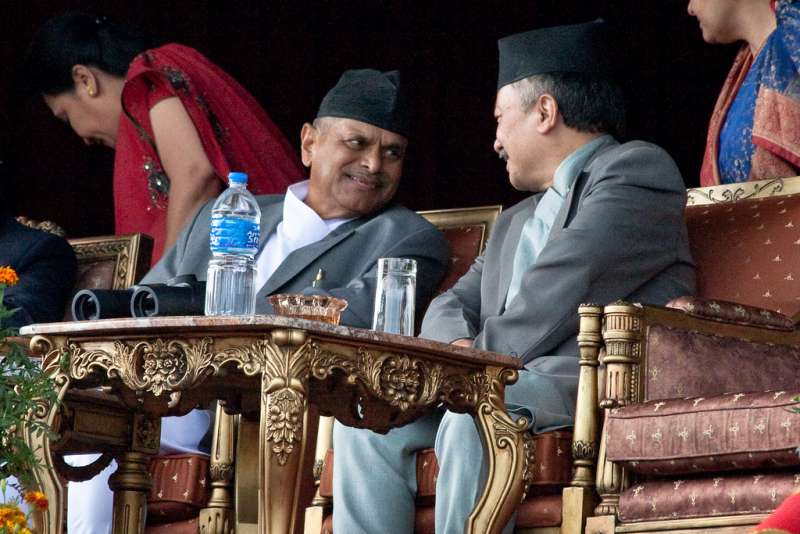 Australia announced that it will file a case against Japan in the International Court of Justice over the country’s whaling practices in the Antarctic. The announcement came in a joint statement from Australian Environment Minister Peter Garrett and Attorney General Robert McClelland, which emphasizes Australia’s “commitment to bring to an end Japan’s program of so-called scientific hunting.” Japan claims that its whale hunts are scientific expeditions, which would make them permissible under international law established by the International Convention for the Regulation of Whaling. Many think the whale hunts serve primarily commercial purposes and claim that much of the meat is sold in Japanese grocery stores and restaurants. In response to the accusations, Agriculture Minister Hirotaka Akamatsu pointed out that Australia is issuing the threat only three weeks before the International Whaling Commission meets in Morocco, where negotiations over scientific whaling are scheduled to take place. At the meeting, the 88-member commission will consider a proposal that would lift the ban on commercial whaling for Japan while imposing a quota on the number of whales that can be hunted each year. The announcement also comes in the midst of a controversial trial, in which a New Zealand national, a member of the Sea Shepherd Conservation Society named Peter Bethune, has been accused of trespassing and destroying property on a Japanese whaling ship during a protest in February. Bethune could face up to 15 years in jail for boarding the ship, which is considered an act of war by the Japanese government.
Australia announced that it will file a case against Japan in the International Court of Justice over the country’s whaling practices in the Antarctic. The announcement came in a joint statement from Australian Environment Minister Peter Garrett and Attorney General Robert McClelland, which emphasizes Australia’s “commitment to bring to an end Japan’s program of so-called scientific hunting.” Japan claims that its whale hunts are scientific expeditions, which would make them permissible under international law established by the International Convention for the Regulation of Whaling. Many think the whale hunts serve primarily commercial purposes and claim that much of the meat is sold in Japanese grocery stores and restaurants. In response to the accusations, Agriculture Minister Hirotaka Akamatsu pointed out that Australia is issuing the threat only three weeks before the International Whaling Commission meets in Morocco, where negotiations over scientific whaling are scheduled to take place. At the meeting, the 88-member commission will consider a proposal that would lift the ban on commercial whaling for Japan while imposing a quota on the number of whales that can be hunted each year. The announcement also comes in the midst of a controversial trial, in which a New Zealand national, a member of the Sea Shepherd Conservation Society named Peter Bethune, has been accused of trespassing and destroying property on a Japanese whaling ship during a protest in February. Bethune could face up to 15 years in jail for boarding the ship, which is considered an act of war by the Japanese government.
China unveiled an economic support package for Xinjiang, where ethnic riots occurred last summer. The influx of cash will boost a struggling local government and promote “leapfrog development and lasting stability” in a region that lags behind most other Chinese provinces economically. The plan contains both a social and an economic component, aimed largely at bringing the region’s GDP per capita up to the national average by 2015. According to the region’s Communist Party secretary, Zhang Chunxian, specific measures in the package seek to relocate 700,000 urban families to safer homes, increase employment, incentivize the establishment of foreign or commercial banks, and promote Mandarin Chinese in the southern region of the province (which contains a large Turkic-speaking population) through improved bilingual education. There is some concern that the measures could stoke ethnic tensions in the region, where the Han have often been accused of discrimination against the Turkic-speaking Uighurs. Some Uighurs have suggested that an increased emphasis on Mandarin fluency will come at the expense of their native Turkic languages, and others have already been forced out of the city of Kashgar because their homes do not meet the package’s updated safety standards. Tensions have been high since last summer, when Uighurs attacked Han citizens throughout the provincial capital of Urumqi, resulting in about 197 deaths and more than 1,600 injuries.
 Party leaders in Nepal remain locked in talks about the extension of their Constituent Assembly (CA), although several Nepalese newspapers reported that a tentative agreement was reached late Friday night. Nepal’s CA has played an instrumental role in the nation’s peaceful transition to democracy, which began five years ago when Maoist rebels agreed to end their decade-long guerilla war. For the past two years, the CA has been working on a new constitution for the nation. However, with the Assembly set to dissolve on Friday at midnight, no constitution was yet completed, and leaders of the nation’s three main political parties — the Maoists, the Nepali Congress, and the Communist Party of Nepal — frantically set up negotiations to extend the deadline. The Maoists, whose votes are needed to ensure that the CA’s tenure is lengthened, initially refused to authorize the extension until Prime Minister Madhav Kumar Nepal resigned. The Maoists have called for Nepal’s resignation since May 2009, when a prime minister from their own party, Pushpa Kamal Dahal, left office in response to a dispute with the head of the army. Earlier this month, tensions were further heightened after Maoists initiated a nationwide general strike that brought the economy to a standstill for six days. However, late Friday night, Nepalese newspapers reported that a tentative agreement to extend the CA’s deadline had been reached, although the details of the agreement are not yet known. As negotiations continue, one issue likely to remain prominent involves the confinement of 15,000 Maoist soldiers, who were imprisoned after the nation’s civil war in 2006.
Party leaders in Nepal remain locked in talks about the extension of their Constituent Assembly (CA), although several Nepalese newspapers reported that a tentative agreement was reached late Friday night. Nepal’s CA has played an instrumental role in the nation’s peaceful transition to democracy, which began five years ago when Maoist rebels agreed to end their decade-long guerilla war. For the past two years, the CA has been working on a new constitution for the nation. However, with the Assembly set to dissolve on Friday at midnight, no constitution was yet completed, and leaders of the nation’s three main political parties — the Maoists, the Nepali Congress, and the Communist Party of Nepal — frantically set up negotiations to extend the deadline. The Maoists, whose votes are needed to ensure that the CA’s tenure is lengthened, initially refused to authorize the extension until Prime Minister Madhav Kumar Nepal resigned. The Maoists have called for Nepal’s resignation since May 2009, when a prime minister from their own party, Pushpa Kamal Dahal, left office in response to a dispute with the head of the army. Earlier this month, tensions were further heightened after Maoists initiated a nationwide general strike that brought the economy to a standstill for six days. However, late Friday night, Nepalese newspapers reported that a tentative agreement to extend the CA’s deadline had been reached, although the details of the agreement are not yet known. As negotiations continue, one issue likely to remain prominent involves the confinement of 15,000 Maoist soldiers, who were imprisoned after the nation’s civil war in 2006.
